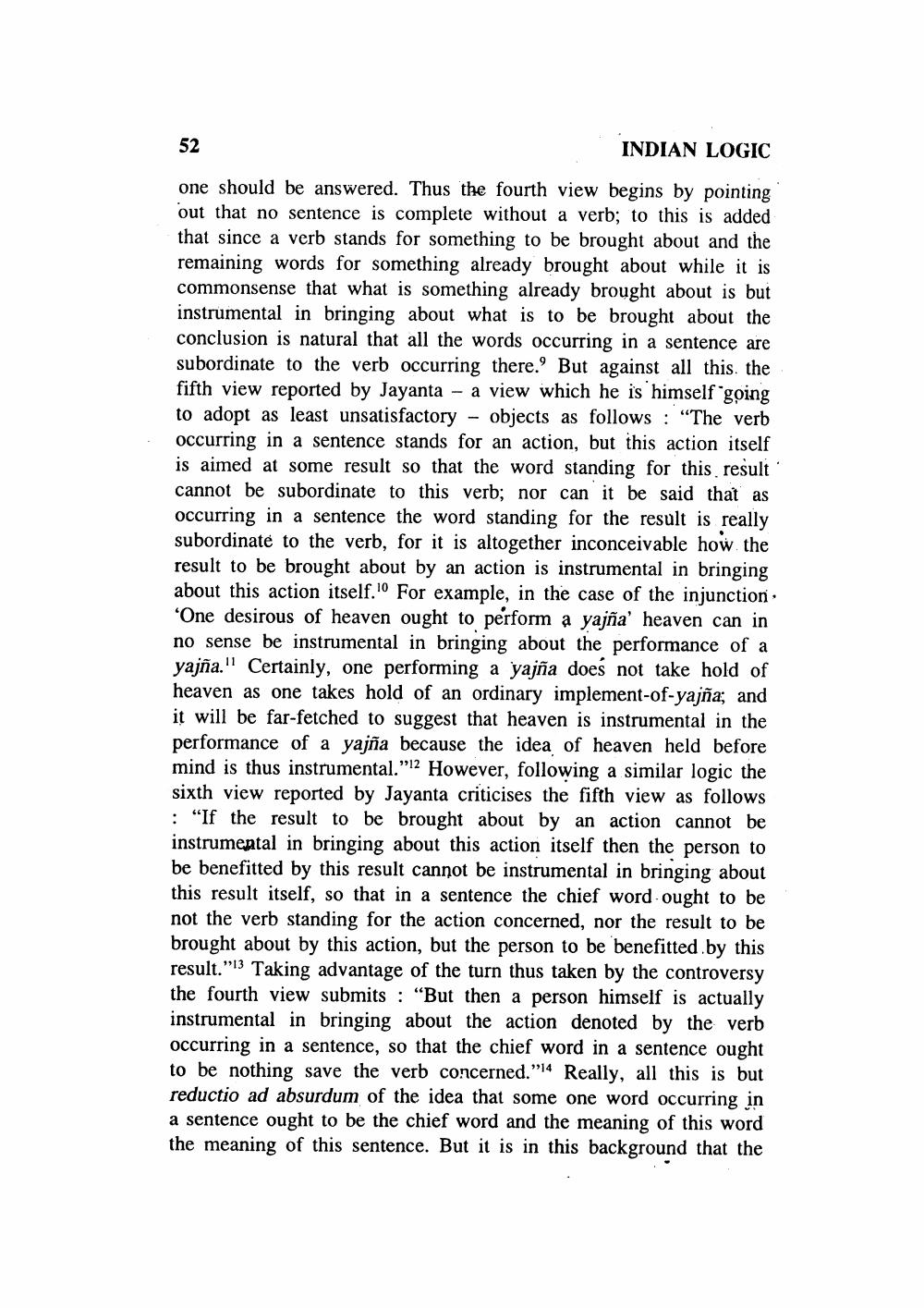________________
52
INDIAN LOGIC one should be answered. Thus the fourth view begins by pointing out that no sentence is complete without a verb; to this is added that since a verb stands for something to be brought about and the remaining words for something already brought about while it is commonsense that what is something already brought about is but instrumental in bringing about what is to be brought about the conclusion is natural that all the words occurring in a sentence are subordinate to the verb occurring there. But against all this, the fifth view reported by Jayanta - a view which he is himself going to adopt as least unsatisfactory - objects as follows : "The verb occurring in a sentence stands for an action, but this action itself is aimed at some result so that the word standing for this result cannot be subordinate to this verb; nor can it be said that as occurring in a sentence the word standing for the result is really subordinate to the verb, for it is altogether inconceivable how the result to be brought about by an action is instrumental in bringing about this action itself. For example, in the case of the injunction "One desirous of heaven ought to perform a yajña' heaven can in no sense be instrumental in bringing about the performance of a yajña." Certainly, one performing a yajña does not take hold of heaven as one takes hold of an ordinary implement-of-yajña; and it will be far-fetched to suggest that heaven is instrumental in the performance of a yajña because the idea of heaven held before mind is thus instrumental.”'12 However, following a similar logic the sixth view reported by Jayanta criticises the fifth view as follows : "If the result to be brought about by an action cannot be instrumental in bringing about this action itself then the person to be benefitted by this result cannot be instrumental in bringing about this result itself, so that in a sentence the chief word ought to be not the verb standing for the action concerned, nor the result to be brought about by this action, but the person to be benefitted by this result."13 Taking advantage of the turn thus taken by the controversy the fourth view submits : “But then a person himself is actually instrumental in bringing about the action denoted by the verb occurring in a sentence, so that the chief word in a sentence ought to be nothing save the verb concerned.”!4 Really, all this is but reductio ad absurdum of the idea that some one word occurring in a sentence ought to be the chief word and the meaning of this word the meaning of this sentence. But it is in this background that the




